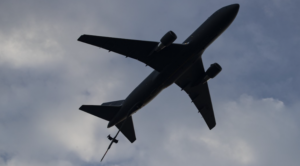The United States seems to be getting more involved in foreign conflicts. Yemen is the latest country in which we are involved in a conflict.
The 20th century is essentially the story of America saving Europe. World War I began in the Balkans and then spread to Europe. Because so many countries had been colonized, the rest of the world was also involved, from Canada to Africa and India. The United States invested troops and resources to force a breakthrough in the Western Front.
World War II was a continuation of World War I, as Europe destroyed itself again and the U.S. intervened again to provide the military power needed to win. After the war, the U.S. remained “the arsenal for democracy” and funded a Marshall Plan that helped rebuild Europe.
Since 1945, we have prevented the occurrence of a third “world war” by pledging to protect the globe with our troops and money. Today, we remain the world’s largest military supplier. America is the world’s leading supplier of weapons, from Taiwan to Ukraine and Israel. Why would Americans want European weapons suppliers to be tied to them?
At least one company, European aerospace giant Airbus is trying to make us do just that. The company is trying to get a piece of the contract for new Air Force refueling tanks, although the Pentagon is satisfied with a tanker made in America already being put into service.
This is the latest front of a long-running battle. The American design has always won. In November, the Pentagon ordered more KC-46 tanks. The Pentagon has already ordered 143 of these tankers from American companies.
Airbus wants to be a part of the funding for another 36 jets that may come up in military bids. As a defense magazine reports, the company is already in trouble: “Air Force Sec. Frank Kendall expressed skepticism about whether a competitive bid would be worthwhile, given the large purchase and the potential need to create a unique and organic logistics capability.”

Airbus’ design is not an improvement.
Forbes reports that the Airbus tanker weighs 40% more than the KC-46, and occupies nearly 50% more ground space. This is important because, “in places such as the Pacific, air bases can be severely limited in terms of available space. A larger plane would mean less tankers or, even worse, less room for bombers and fighters.”
Any new tanker must also prove it can fuel the rest of Air Force’s fleet. It has taken the KC-46 years to prove that it is capable of doing this. Airbus planes would cost hundreds of millions for the Air Force to duplicate these tests.
This isn’t all the cost. The Air Force will need twice as many spares and mechanics trained to maintain their fleet if they have two tankers. Over time, the cost would mount up.
Airbus has also been noted as going over budget. The Space Intel Report reports that in November, Airbus Defence and Space took a charge of 400 million euros (428 million dollars) to its third-quarter earnings. This was due to cost overruns and delays in a satellite development program which has not been identified but already received multiple orders. The current KC-46 does not cost overruns to the American taxpayer. They could be stuck with an Airbus bill. Why risk it?
The United States must design and manufacture American weapons. We must continue to provide the weapons that have kept the peace for so long. Airbus should stay in Europe and serve any customers that it can find.










